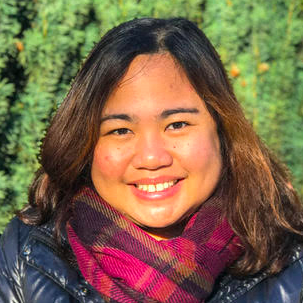

Challenges and misfortunes such as this pandemic can be an opportunity to bring out the best in someone. In fact, one of Isaac Newton's most productive periods as a scholar was during the Great Plague of 1666. As a PhD student, I couldn't help but speculate the circumstances surrounding Newton at that time. Was he out of funding? Did he attempt to go home? How did he survive?
But maybe events like this pandemic also bare the truth about your status and privilege. As a scholar stranded abroad, the consequences of COVID-19 elucidated what it means to be vulnerable and insecure as the world grapples with a crisis.
Hopeful years
The opportunity of studying abroad lives with you for long. You embrace a new way of thinking, learning, and living, and you enhance your potential through a diverse set of experiences and environments, which can incubate scholarly ideas. It is even more thrilling when students are awarded with funding, because it turns an impossible dream into a reality.
Everyone arrives in their host countries very hopeful. I still remember that day in 2016, when I first came to Japan, full of hope and possibilities. I thought that in 4 years, I would be able to contribute to my discipline and improve my perspectives. But all of these expectations are assumed within favorable conditions.
My life as a scholar was also filled with ups and downs, but they were all predictable. I knew that funding would never be enough; that publishing was a painful process; and that people often don’t finish on schedule. There sure were a lot more questions than answers. My PhD was not only an academic journey, but also a life lesson.
Yet nothing prepared me for being stranded and in limbo during the pandemic.
Diverging privileges: Not all scholars are the same
COVID occurred during the most stressful and hectic time of the academic calendar year. When the spread and the threat of lockdown were imminent, even just to pack up and leave was not a privilege for all scholars. Last-minute plane tickets were unfamiliar options even before the pandemic, and it always will be for students who are under limited funding. In that fateful moment, the world closed its doors, leaving thousands of people with no choice but to stay where they were. (READ: [OPINION] Studying in the U.S. in the middle of a pandemic)
We cannot say that the pandemic affects everyone in the same manner. Some may only be inconvenienced by the (temporary) school closures and halt to their experiments and data gathering activities. Educational institutions were quick to adopt the online mode of learning, but as seamless as it seemed for those with developed infrastructures for learning, it wasn't for those who don't have a decent internet connection.
Learning was just one aspect where students were inequal. Not all students experienced the same financial woes as well. Some were stranded without funding or had no opportunity to get a part-time job. I was unfortunate to be caught in the crossfire of the pandemic and the tail-end of my scholarship. It wouldn’t have been a problem if I was done with my studies, but with my pending requirements, the end was far from sight: graduation, going home, and the death of this pandemic.
Universities and schools give as much assistance as they can to those affected by the pandemic. Still, help isn’t as universal as it seems. It entails a lot of work to be eligible for assistance. In some instances, students first need to prove good academic status and a decrease in income. Undoubtedly, institutions want to be prudent in giving help, but falling short of these qualifications doesn’t mean a student is not affected by the pandemic.
Who takes care of us?
Filipino students abroad during this crisis are in a liminal space. We are not considered OFWs nor do we have their privileges. We might be closer to a long-term tourist, ultimately classified as an Overseas Filipino (OF). This truth was revealed when OFs had to pay for their own quarantine and testing. And shouldering our own financial expenses is just one aspect of our vague status. (READ: [FIRST PERSON] Diary of a Filipina who survived coronavirus in Berlin)
Identity matters to survive in this pandemic. Asking for assistance also means going through a lot of bureaucratic lingo – “Who is your coordinator?” “Who provides your scholarship?” – in order to pinpoint what kind of assistance you deserve.
The host country can only provide so much assistance at this point, but who then takes the responsibility when this assistance runs out? What do Filipino scholars abroad, in this time of the pandemic, mean for the Philippines, regardless of their scholarships and universities?
Hopeful, still
As I wait for our repatriation flight to the Philippines (after 7 ticket cancellations), I remain hopeful and try to remember that day I arrived as a scholar. This experience has taught me more about how your privilege can dictate your entitlement for welfare, and how well you will fare in this crisis. Coincidentally, my dissertation focuses on the politics of gender and the redistribution of cash transfer programs.
Despite all the glamor, opportunities, and titles they enjoy, Filipino scholars abroad are mired in liminality and uncertainty. Their sense of security is usually found within the 4 walls of the classroom, so when everyone and everything is affected, this security comes into question. I hope this pandemic helps us recognize the inequality and insecurity Filipino scholars experience abroad. We, too, are affected. We hope to keep our well-being intact in this crisis, so we can bring home contributions that will be beneficial to the country. – Rappler.com
Tina Alinsunurin is a PhD student at Nagoya University, studying International Development. Follow Tina on Twitter (@ciaobetina) for discussions on gender and welfare.